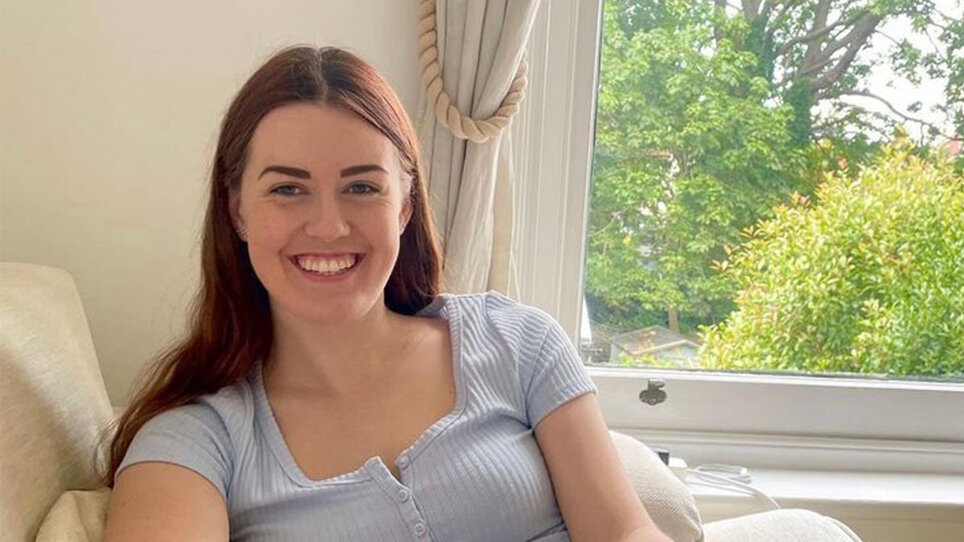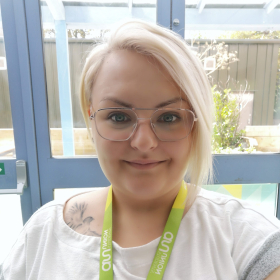
"We all know that looking after our mental health is important, but sometimes it can feel almost impossible and being autistic can make this harder."
Emily Katy
- autistic mental health advocate
Emily Katy on her mental health journey, tips for fellow autistic people, and more...
The past few years have been difficult for a lot of us. If you or someone you know is struggling with their mental health, we want you to know that you are not alone. We have plenty of mental health guides and resources on our website. If you would like more information on seeking professional support for your mental health, please visit our seeking help with mental health page. We hope you find these pages helpful.
With this in mind, we caught up with Emily Katy, one of the speakers at our recent mental health conference. Emily is an autistic advocate, mental health advocate and blogger. Here, she writes about her own experience of obsessive compulsive disorder (OCD) and depression, and shares some handy tips, resources, and contacts for fellow autistic people who may be struggling with their mental health.
"There is absolutely no shame in asking for help. Finding the right therapy and medication, if you need it, can be life changing."
We all know that looking after our mental health is important, but sometimes it can feel almost impossible. Being autistic can make this harder.

Sometimes the demands placed on me are too much to handle and I get overwhelmed. Sometimes navigating life is just too difficult. Sometimes I just really struggle to regulate my emotions, which isn’t helped by the fact that half of the time I can’t even identify what I am feeling!
My journey with my mental health is complicated. When I hit 13, my anxiety spiralled and suddenly I couldn’t go anywhere without having a panic attack. This developed into OCD and depression, and I was hospitalised. During these times I felt deep loneliness, because I felt misunderstood and like I didn’t fit in.
A lot of the mental health advice shared is helpful for general wellbeing, but if you have a mental illness, it isn’t enough. Going for a walk isn’t going to cure depression, but it might lift your spirits temporarily. So, my first, and most important, piece of advice is to seek professional help if you need it. There is absolutely no shame in asking for help. Finding the right therapy and medication, if you need it, can be life changing.
However, waiting lists are long. In the meantime, there are other services which can help. Many local areas have crisis cafes and there are charities you can reach out to such as Mind. There are crisis lines such as Samaritans and you can always call 111 option 2 to speak to your local mental health team. There is always someone on the end of the line to talk to – you don’t have to suffer alone.
But, if you are looking for some small ideas which could help you, I have a few to share…
One of these is prioritising spending time on your special interest, because this can be so rejuvenating and calming. You could even check if there are any local groups to do with your special interest in your local area (eg social events, local sports groups, writing or arts groups etc).
"Journaling can also be a great way to help your mental health. I find that even just rating my days as green, amber or red means that on a bad day I can look back and see that not all days have been bad."
Your local National Autistic Society may have groups or activities that interest you – from running groups to book clubs, and LGBTQ+ groups. Find out more about branches.
Journaling can also be a great way to help your mental health. I find that even just rating my days as green, amber or red means that on a bad day I can look back and see that not all days have been bad. When I’m in a bad place, I have a tendency to think that things are always bad, so being able to see that factually this isn’t the case is helpful.
On bad days, it can be useful to have a plan to share with the people in your life, so they know how to support you. This could include a list of things they might notice if you’re struggling - a list of your triggers, descriptions of how you would like to be supported and how is best to communicate with you. That way everyone is on the same page!
"Finding a community of other autistic people can make a world of difference. This could be on social media, such as the #ActuallyAutistic X community, the National Autistic Society’s online community, or in virtual or face-to-face peer support groups."
Finally, something which has been priceless to me, is connecting with other autistic people. Sometimes non-autistic people just don’t get it, and it can be tiring to explain over and over that our brains just don’t seem to work the same way.
Finding a community of other autistic people can make a world of difference. This could be on social media, such as the #ActuallyAutistic X community, the National Autistic Society’s online community, or in virtual or face-to-face peer support groups.
Just remember – your mental health is important, and if you’re feeling rubbish right now, please know that it’s not permanent. You can find more information about mental health and where you can find support on the National Autistic Society’s advice and guidance pages.
Enjoyed reading Emily’s article?

Related advice and support
Similar stories

"I realised how low my self-esteem was from constantly feeling the need to mask my true self, in case others judged me negatively."
Dr Hannah Belcher
- autistic postdoctoral researcher and author
Read more

"For some autistic people, the feeling of loneliness can be really strong, and it can feel incredibly isolating. I want you to know that you’re not alone if you are feeling this way."
Emily Katy
- autistic mental health advocate
Read more

"For the longest time, I only ever considered my mental health when it couldn’t be ignored."
James Ward-Sinclair
- autistic advocate and founder of Autistic & Unapologetic
Read more

The Spectrum magazine
Explore one of the UK's largest collections of autistic art, poetry, and prose. The Spectrum magazine is created by and for autistic people, and is available both online and in print.

Stories from the Spectrum
Autistic people and their loved ones share their experiences. Read their funny, thought-provoking, challenging and moving stories.






You are not alone
Join our community
Our online community is a place for autistic people and their families to meet like-minded people and share their experiences.
Join today